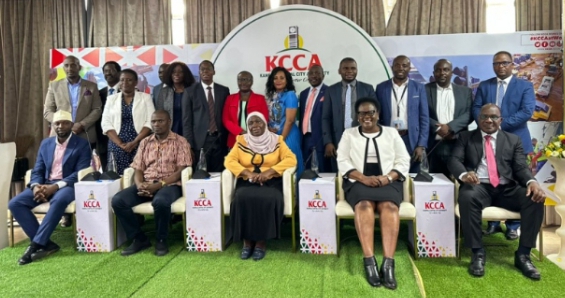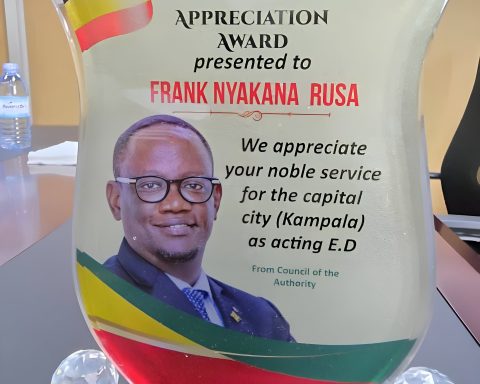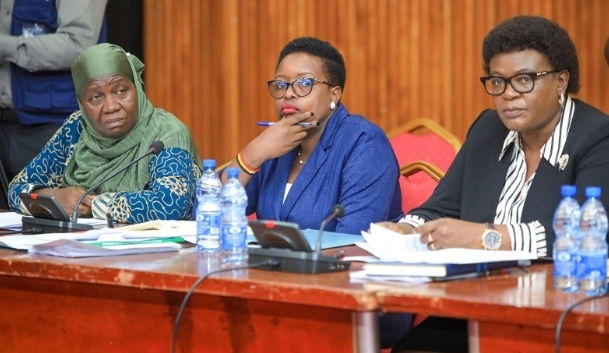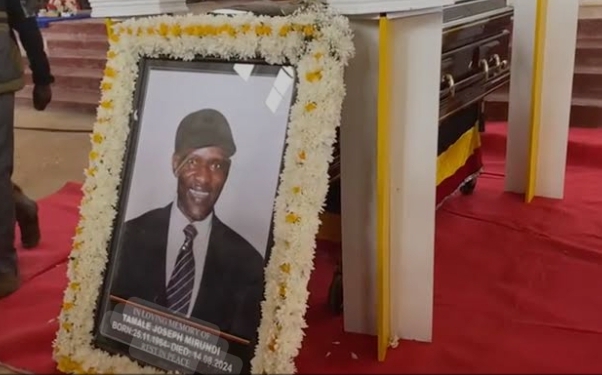In a bid to accelerate the development of Uganda and transform Kampala into a Smart City, Minister for Kampala Capital City and Metropolitan Affairs, Hajat Minsa Kabanda, has called upon non-governmental organizations (NGOs) to actively support the Parish Development Model (PDM) and other government programs.
The minister emphasized the crucial role that NGOs play in bridging the gaps left by the government and highlighted the importance of their involvement in achieving the National Development Plan III, Vision 2040 and the Sustainable Development Goals.
The call to action was made on Friday during the Nakawa Division Urban/NGO Symposium held at the prestigious Skyz Hotel Naguru in Kampala. The event provided a platform for NGOs to connect with strategic partners and explore collaborative opportunities in delivering services that would contribute to the realization of a smart city.
With 217 NGOs operating in Kampala and 860 Community-Based Organizations (CBOs), Minister Kabanda recognized their significant contributions to improving the lives of the city’s residents and expressed gratitude for their continuous efforts.
The State Minister for Kampala Capital City and Metropolitan Affairs, Hon Kabuye Kyofatogabye also attended the symposium.
During the symposium, Dorothy Kisaka, the Executive Director of KCCA, delivered a keynote speech emphasizing the importance of leveraging the PDM structure as a framework for NGOs to document and deliver their activities at the parish level.
She highlighted the community-led leadership approach of the PDM, which ensures that services are effectively delivered to the people. Kisaka also expressed the intention to annually celebrate the valuable work done by NGOs and invited them to utilize the PDM leadership structure.
The event witnessed the participation of Nakawa East Member of Parliament, Ronald Balimwezo, who commended the efforts made by NGOs in uplifting the quality of life in Kampala. Balimwezo acknowledged the absence of a well-structured framework for engaging with NGOs and emphasized their role as partners rather than competitors in delivering essential services and improving the well-being of Kampala’s residents.
Minister Kabanda echoed Balimwezo’s sentiment and stated that the symposium aimed to fulfill the city’s strategic plan by strengthening city governance, citizen engagement and the role of non-state actors as outlined in the PDM.
The minister highlighted the challenge of limited funding for city service delivery, with the budget allocated to Kampala falling short of the required amount. To overcome this challenge, Kabanda emphasized the need for innovative partnerships with NGOs to augment government efforts.
KCCA’s Smart City Agenda, aligned with the National Development Plan III, Vision 2040 and the Sustainable Development Goals, was a focal point of the symposium. The agenda seeks to enhance service delivery, improve system efficiency and transform Kampala into an inclusive, safe, sustainable and efficient city.
The collaboration between KCCA and NGOs aims to tap into the NGOs’ service delivery prowess and collectively address the demands of city service delivery, while also improving household incomes and livelihoods.
Kisaka reaffirmed KCCA’s commitment to a transparent and vibrant city NGO community. She stressed the importance of NGOs participating in the preparation of the City Strategic Plan and annual budgets and encouraged them to align their interventions with the city’s direction and community needs.
The Nakawa Division Urban Town Clerk Denis Omodi expressed confidence in the collective efforts of KCCA and NGOs in designing and implementing solutions to urban challenges.
He said the symposium marks a significant step forward in fostering partnerships between the government and NGOs in Uganda. With a shared vision of transforming Kampala into a Smart City, the collaboration between these key stakeholders is expected to bring about positive change, improve service delivery and enhance the overall well-being of the city’s residents.
![]()




























